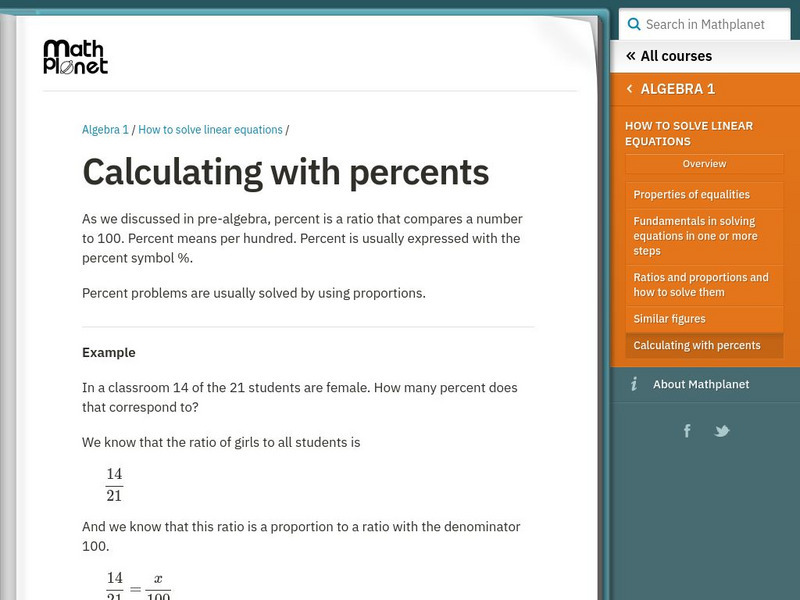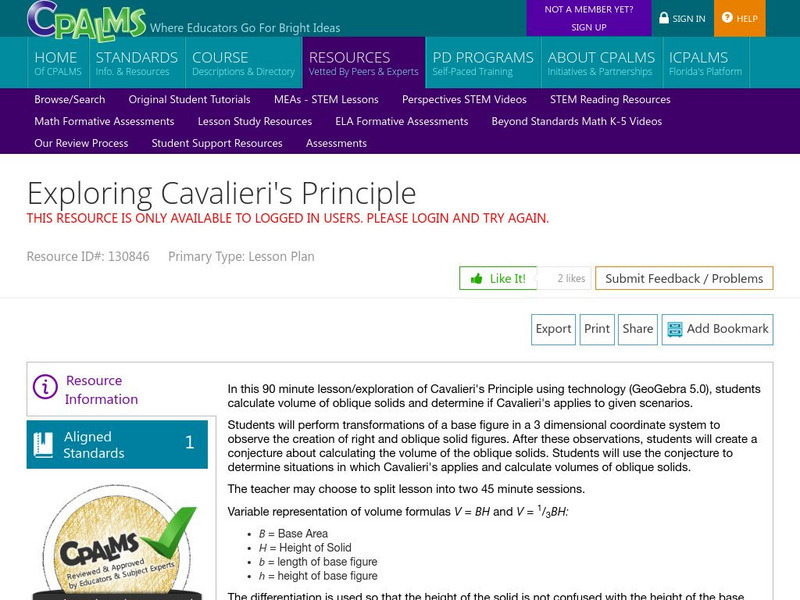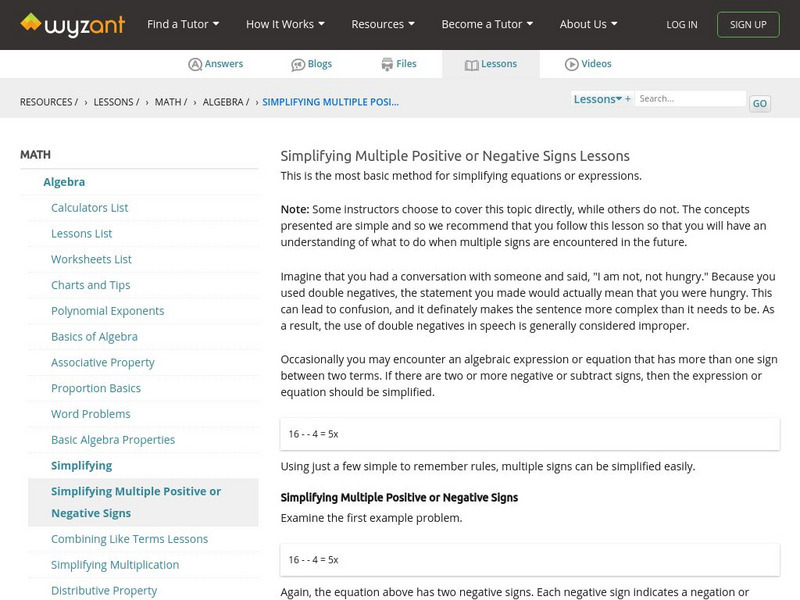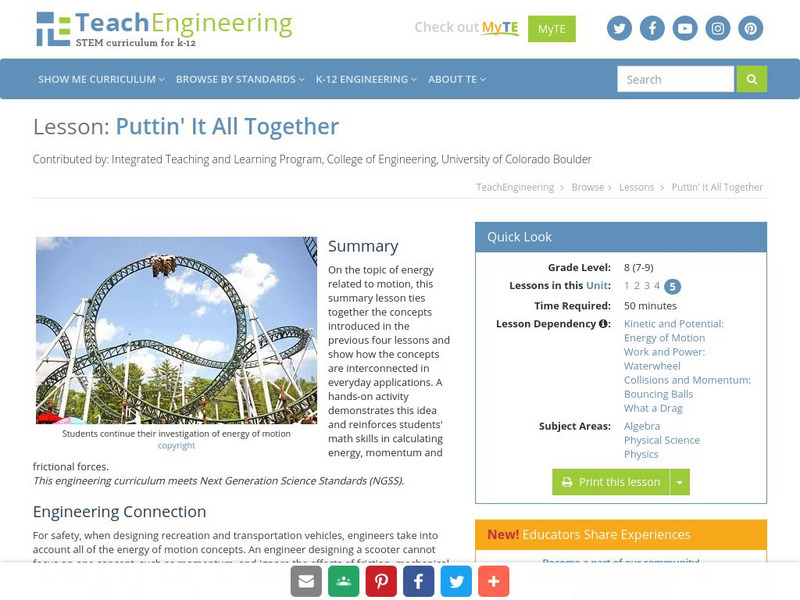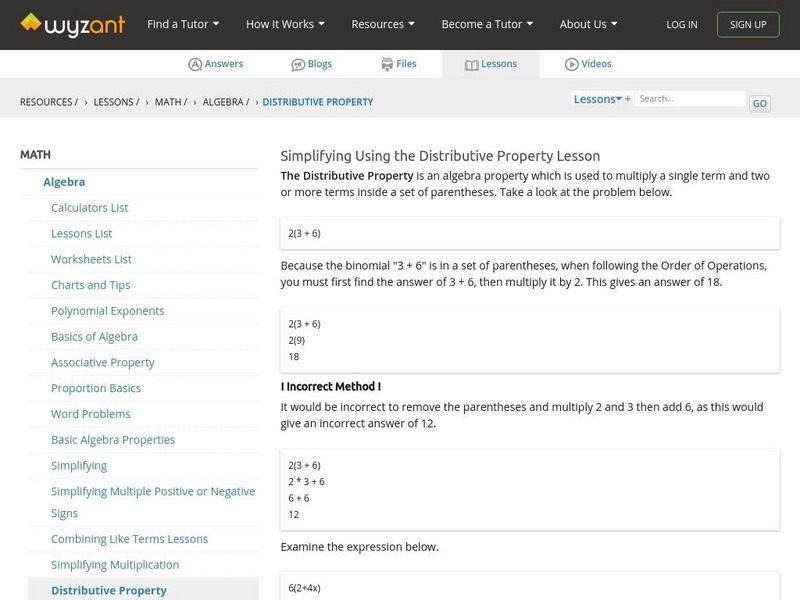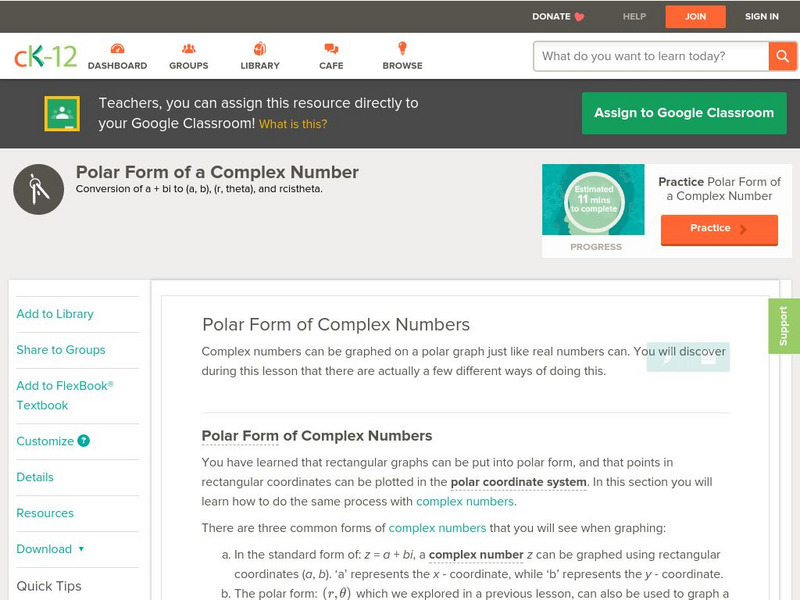Teachnology
Teachnology: Math Lesson Plans
Great lesson plans covering a wide-range of math-related subjects.
Better Lesson
Better Lesson: Rewriting Formulas
For this lesson, young scholars explore "real-life" resources that make use of literal equations (rewriting known formulas) to help make people's lives easier. Students will use Excel to design formulas that find a specific value like...
Math Planet
Math Planet: Algebra 1: Calculating With Percents
Provides examples and a video lesson that illustrates how to solve percent problems.
Better Lesson
Better Lesson: What Angles Are on a Bat House?
Third graders are preparing to build bat houses. They have calculated surface area, identified nail placement, and will now collect data on angle types in this real-world activity.
Better Lesson
Better Lesson: Using Area as an Architect (Stations Day 1)
In this multi-day activity, 3rd graders make 3 different models of an orphanage floor plan using Google Drawing, Virtual Graph paper, and a construction of rectilinear shapes, to calculate the area of each room using units square.
Alabama Learning Exchange
Alex: Wildlife Math
This integrated lesson is the result of collaboration between Chip Blanton, a wildlife management teacher, and Greg Pendergrass, a math teacher (Ft. Payne High School). Learning to manage wildlife requires an understanding of planting...
University of Regina (Canada)
University of Regina: Math Central: Surface Area to Volume Ratio
Students will investigate the relationship between surface area and volume and their application to the inner workings of real life organisms.
Alabama Learning Exchange
Alex: Let's Go Shopping!
This lesson will give students practice with adding and subtracting money using a calculator. It will provide them an opportunity to determine savings using a store coupon, and determine the change they should recieve when making...
Math Planet
Math Planet: Calculating With Decimals and Fractions
Gain an understanding of how to calculate with decimals and fractions by viewing an example and a video lesson.
Alabama Learning Exchange
Alex: Something's Fishy: A Lesson in Biological Sampling
Determining the population in a larger area by tagging. By using proper scientific method and careful sampling procedures, students learn how biologists work in the field to collect data about a population. Students will also calculate...
University of Colorado
University of Colorado: Ph Et Interactive Simulations: Expression Exchange
An interactive simulation that teaches about equivalent, evaluating, and simplifying expressions through games and exercises building coin expressions. This simulation can either be downloaded or played online and includes handouts,...
CPALMS
Cpalms: Exploring Cavalieri's Principle
[Free Registration/Login Required] In this lesson, students use the geometry program GeoGebra to explore Cavalieri's Principle, specifically to investigate whether it applies when calculating the volume of oblique solids. Lesson includes...
CPALMS
Cpalms: Building Graduation Caps
[Free Registration/Login Required] In this lesson, students build geometric models of graduation caps using stiff paper. The activity requires the application of skills in finding surface area, understanding similarity, knowing the...
Wyzant
Wyzant: Simplifying Multiple Positive or Negative Signs
Students learn how to simplify multiple positive or negative signs. The resource consists of lessons with examples, a combining like terms calculator, an equation calculator, and a activity to check for comprehension.
CK-12 Foundation
Ck 12: Algebra: Solving Linear Systems Using Matrices and Technology
[Free Registration/Login may be required to access all resource tools.] This lesson covers using a graphing calculator and matrices to solve a system of equations.
TeachEngineering
Teach Engineering: Puttin' It All Together
On the topic of energy related to motion, this summary lesson is intended to tie together the concepts of work, power, collisions, momentum and drag. A hands-on activity demonstrates this idea and reinforces learners' math skills in...
Wyzant
Wyzant: Simplifying Using the Distributive Property
Students investigate how to simplify using the distributive property. The resource consists of lessons with examples, an expression simplifying calculator, and a worksheet to check for comprehension.
Cuemath
Cuemath: Rate
In this mini lesson, students will learn about rate, what is rate, the unit rate calculator, the ratio definition, and unit rate examples. Practice questions test understanding.
PBS
Pbs: The Lowdown: Percents Defined
Learn how to calculate percent as a rate per 100 in this video from KQED. In the accompanying classroom activity, students model percent with a 10 x 10 grid. After watching the video, they create a design or picture on a 10 x 10 grid,...
CK-12 Foundation
Ck 12: Polar Form of a Complex Number
[Free Registration/Login may be required to access all resource tools.] Here you will learn how to convert complex numbers from rectangular form to polar form. You will also explore the graphs of complex numbers on a polar graph.
Alabama Learning Exchange
Alex: My Peanut Butter Is Better Than Yours!
The students will engage in the process of statistical data comparing data using tables and scatterplots. The students will compare data using measures of center (mean and median) and measures of spread (range). This lesson can be done...
Alabama Learning Exchange
Alex: Jump!!! An Exploration Into Parametric Equations
Students will use vectors and parametric equations to determine the velocity that they should jump out of the window of a burning building in order to land safely into the rescue net. They will work in small groups and utilize graphing...
Alabama Learning Exchange
Alex: Exploring Slope
The purpose of this lesson is to help young scholars see the real world application of slope. The students will view a movie clip of slope, calculate the slope of stairs in the school building, and analyze results.This lesson plan was...
Alabama Learning Exchange
Alex: Calendar Fun Operations
This activity is designed to help students evaluate numerical expressions by using order of operations. The students will be provided a calendar for the current month of the year. Students will then be provided with a worksheet that...


